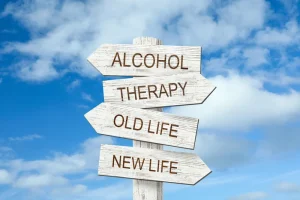
Although they are still drinking, they’ve likely begun telling friends and family members about their plan to change their behavior — but they may still feel some ambivalence about their choice. Obviously, if someone is under the influence of alcohol, opioids or other drugs, the visible effects of those drugs are pretty good indicators for relapse. However, it’s important to keep in mind that many people with substance alcohol relapse statistics use disorders are exceptionally good at hiding their use from those around them. Relapse is total dysfunction, where a person has continually engaged in a pattern of thoughts or behaviors that destabilizes recovery and makes the use of alcohol or other drugs appealing. To this person, a return to addiction makes sense because they’ve been internalizing, listening to and agreeing with the logic of addiction.
Stress Dysregulation and Enhanced Drug Craving in Addicted Individuals
It teaches you how to overcome negative thinking, which is often at the heart of a relapse. For example, you might believe that you can’t quit, that recovery takes too much effort, and that you won’t enjoy life as much without alcohol. A 2006 study published in the journal Addiction found that 62 percent of people treated for alcoholism through alcohol https://ecosoberhouse.com/article/drug-use-in-sports-risks-you-have-to-know/ rehab or Alcoholics Anonymous maintained recovery after three years. About 43 percent of people who did not receive any form of treatment maintained sobriety. In a separate 2014 study published in Drug and Alcohol Dependence, researchers reported relapse rates of 506 people who had maintained recovery from alcohol use disorder for one year.
- However, it takes work to stay in recovery, and even the hardest-working person can experience slips, lapses and relapses during the alcohol recovery process.
- We’ll tell you the best way to handle it so you can return to sobriety.
- Whether your relapse means that you need to attend treatment again depends on several factors.
- As a result of these brain changes, a person experiencing drug or alcohol dependence will have a particularly difficult time maintaining sobriety—especially when faced with a psychological, physical, or emotional trigger.
- For people who have established a sustained period of sobriety, relapse doesn’t occur overnight.
- When feelings of loneliness set in or being socially isolated becomes too much, know that you are never fully alone.
- While we are unable to respond to your feedback directly, we’ll use this information to improve our online help.
Stages of Relapse
Some people may feel so “broken” that they almost feel they can no longer experience joy and confidence, or have healthy relationships again. Since withdrawal symptoms tend to ebb and flow, you may be tempted to feel like you’re not making progress ― even though in reality, you’ve come a long way. While the abstinence stage of withdrawal causes mostly physical symptoms, post-acute withdrawal is very psychological and emotional.
Mental Relapse

By talking regularly to someone going through the alcohol recovery process you should be able to notice when these behaviours begin to kick in and work through them early. This is incredibly important because the earlier you are able to identify an issue, the better chance you will have of providing the support they need. At the preparation stage, alcoholics have decided to make a change, and they are planning to take meaningful steps toward recovery in the near future.
- They either relapse or seek further therapy to prevent future slips.
- While in alcohol rehab, they were in an alcohol-free environment where they were shielded from their addictive triggers.
- For people with longer-term recovery, outsiders can see more clearly the behavioral changes and warning signs that coincide with relapse, like someone suddenly disappearing from their home-group Twelve Step meeting.

If they are in an uncontrollable state then get in touch with us and we can advise you on the best course of action. During this stage, people are experiencing the negative impacts of their alcohol addiction, but they have no intention of changing their behavior. When relapse happens, it’s important not to blame your loved one or get frustrated and angry with them. Instead, help them find the best treatment option for them so they can get back on track to long-term recovery. You may encourage them to call their sponsor, research other treatment options with them such as long-term treatment, or utilize another professional resource.
Support Your Recovery
Brain-Imaging Studies of Alcoholics’ Responses to Alcohol Cues and Stress and Implications for Relapse Risk

- You stop attending all meetings with counselors and your support groups and discontinue any pharmacotherapy treatments.
- Therefore, a key aspect of recovery is identifying potential triggers and risk factors and avoiding them as much as possible.
- If you are struggling with addiction to alcohol or drugs, substance use treatment can help.
- They often say that the person seems like his or her old self.
- Attending meetings, which are held all over the world, allow you to share your experience with others and find strength and hope from them and their experiences.
